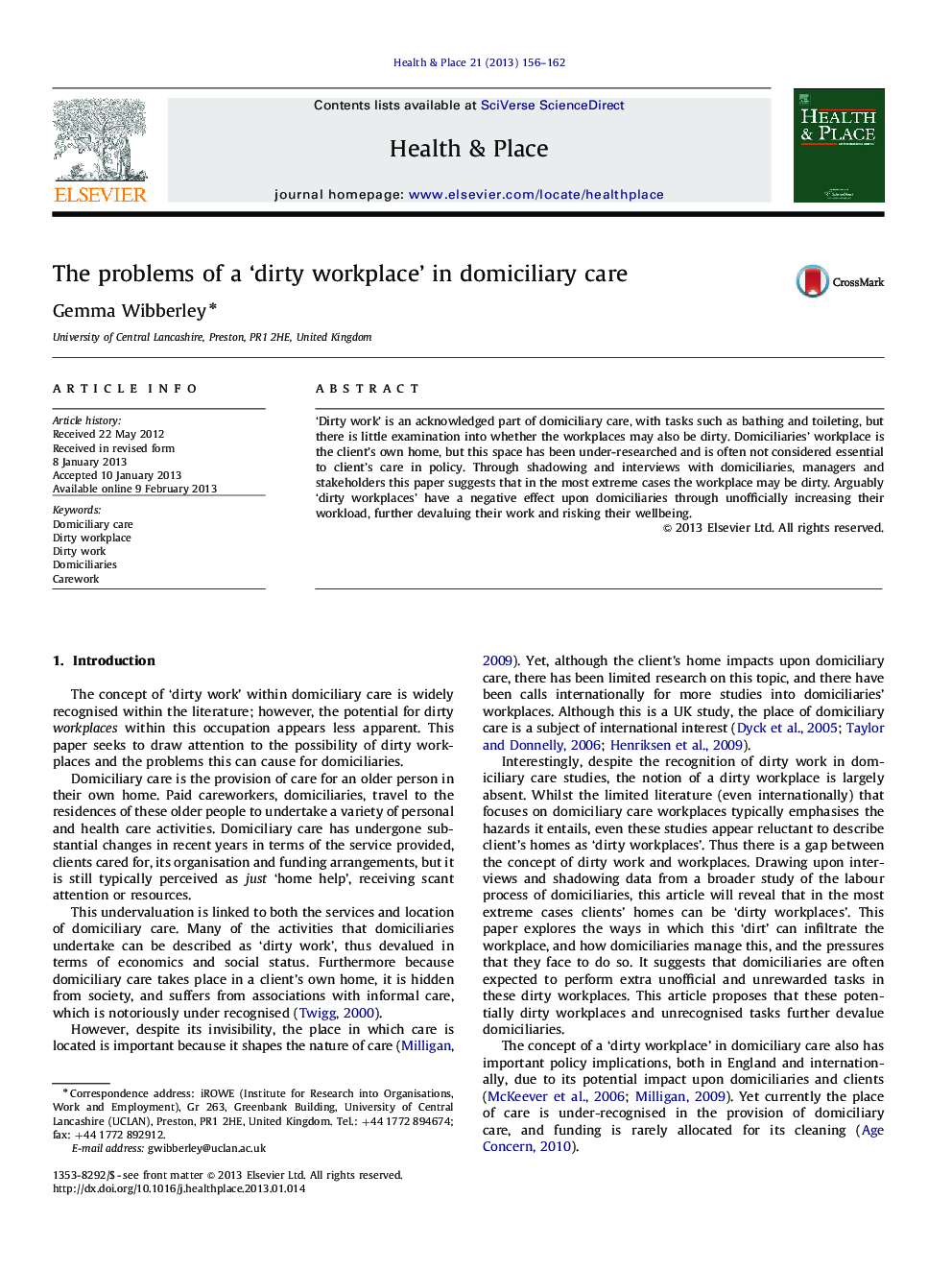| Article ID | Journal | Published Year | Pages | File Type |
|---|---|---|---|---|
| 1048655 | Health & Place | 2013 | 7 Pages |
‘Dirty work’ is an acknowledged part of domiciliary care, with tasks such as bathing and toileting, but there is little examination into whether the workplaces may also be dirty. Domiciliaries' workplace is the client's own home, but this space has been under-researched and is often not considered essential to client's care in policy. Through shadowing and interviews with domiciliaries, managers and stakeholders this paper suggests that in the most extreme cases the workplace may be dirty. Arguably ‘dirty workplaces’ have a negative effect upon domiciliaries through unofficially increasing their workload, further devaluing their work and risking their wellbeing.
► Shadowing and interviews with domiciliary care staff and stakeholders, on workspace. ► Domiciliaries' workplace is the client's own home, and an under-acknowledged place. ► In the most extreme cases the workplace may be dirty. ► ‘Dirty workplaces’ can have negative effects upon domiciliaries. ► Unofficially increases domiciliaries' work, devalue them and risk their wellbeing.
